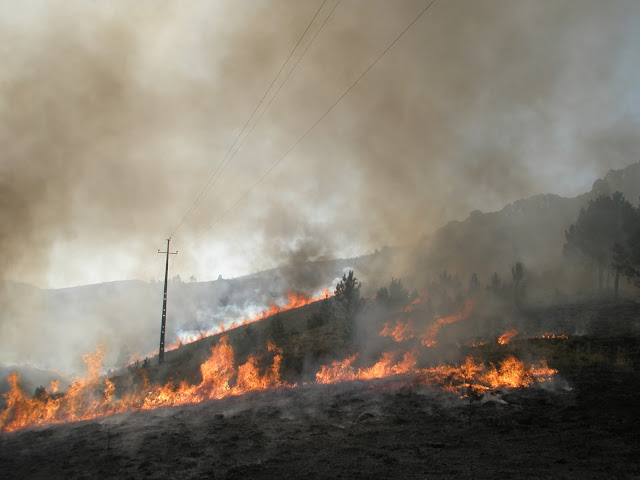When scientists torched an entire 22-acre watershed in
Portugal in a recent experiment, their research yielded a counterintuitive
result: Large, hot fires do not necessarily beget hot, scorched soil.
It’s well known that wildfires can leave surface soil burned
and barren, which increases the risk of erosion and hinders a landscape’s
ability to recover. But the scientists’ fiery test found that the hotter the
fire—and the denser the vegetation feeding the flames—the less the underlying
soil heated up, an inverse effect which runs contrary to previous studies and
conventional wisdom.

